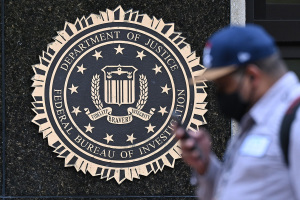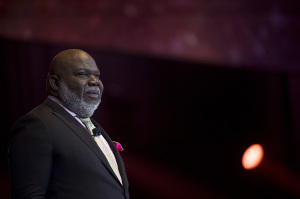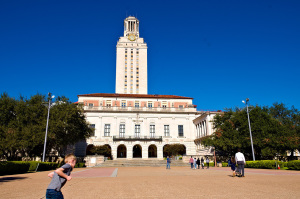Mark Driscoll Exclusive: Answers to Questions on Death of Christendom, Call to Resurgence, and John MacArthur Invitation
Outspoken Pastor Mark Driscoll raises some challenging questions that should concern most Christians in his new book, A Call to Resurgence: Will Christianity Have a Future or a Funeral?
Driscoll makes the argument that America is quickly becoming an irreligious country – a post-Christian culture. He goes so far as to state that "Christendom is Dead," the subject and title of the first chapter in the book.
"The big idea is this: I don't know if you are aware of it, but Christendom is dead," he says during a recently released video promoting the book's theme. "The bus is no longer carrying us, it's running over us. Christianity is no longer popular and there are no social benefits to waving the Jesus flag. All you are going to get is persecution, opposition, and criticism. That's the day in which we live. The question is what will we do?"
On the back book cover, it's explained that living in a current climate where the culture is fundamentally at odds with faith in Jesus is both "good and bad news."
"The good news is that God is still working, redeeming people from this spiritual wasteland and inspiring a resurgence of faithful believers. The bad news is that many believers just don't get it. They continue to gather exclusively into insular tribes, lobbing e-bombs at each other in cyberspace."
The Christian Post had a chance to catch-up with Driscoll via email before the Resurgence (R13) two-day conference that he is hosting next week at Mars Hill Church in Seattle, Wash., the church he leads.
Driscoll's interview with CP is below:
CP: In Chapter 1 of your book you talk about the Seattle area as being "not just post-Christian," but "pre-Christian." You then juxtapose this mission field, that's been part of your ministry for 20 years, to what's going on in the rest of the country. What is it you would like to stress most from your chapter, "Christendom is Dead?"
Driscoll: The cultural context of yesterday is not the cultural context of today and will not be the cultural context of tomorrow. We have passed through the worm hole and it has closed behind us. The sooner we stop whining and start working, the better off the Church will be. The days will get harder, the criticism will get louder, and the obstacles bigger. Many Christians are feeling this and fearing this. However, the most common command in the Bible is "fear not". Nearly every time the Bible says this, God also says in some fashion "for I am with you". The God of the Bible loves us, and loves our neighbor. God has determined we would be born now to live where we live, to endure what we endure to all as part of a divine plan to adore Jesus and advance Jesus' message and mission.
CP: What does it mean to be part of the "Reformed tribe?"
Driscoll: Reformed theology is primarily related to salvation. Does God save us entirely, or do we participate in some way? Broadly speaking, Reformed theology is the heart of the Protestant Reformation and is bigger than expressions of it such as Calvinism or Lutheranism. Basically, God is a Father who alone picks which kids are adopted into His family. What matters most, no matter what the label, is that our theology be God-centered and not man-centered. We are not the center of the universe, God is. What we want is not most important, what God wants is. Tragically, much of what qualifies as Christian preaching is little more than shallow steps to some personal victory borrowed from self-help and baptized with Christianese that is devoid of deep biblical themes such as the character of God, nature of sin, act of repentance, and empowerment of the Holy Spirit to become more like Jesus as part of His church. Labels matter little and the Lord matters much.
CP: You have a conference coming up soon with some big-name Christian leaders. What's the theme of this event? What do you hope will be the most important takeaway from the Resurgence event?
Driscoll: I will open the conference speaking about the changes in culture that I outline in A Call To Resurgence, as well as the obstacles and opportunities that are ahead of the church for the gospel of Jesus Christ. I am deeply honored that the speakers have given their time and insight for this conference. Each of these men is someone I greatly admire and appreciate and I am certain they will bring a timely word from God's timeless Word. My heart has always been for ministry leaders – especially young men aspiring to or active in ministry leadership. I am asking the Holy Spirit to use the instructional and relational aspects of the conference to help leaders from various tribes waste less time fighting and more time learning so we can all invest our energy in evangelizing. I will close out the conference with the findings from a massive research project we have undertaken about the most common objections to Christian faith by the unchurched and de-churched ages 18-44 that is the basis for my next book due out next fall that I am currently writing as the follow up to A Call To Resurgence. The tentative working title is My Problem With Christianity. This is the biggest research and writing project I've ever been a part of and the findings are surprising and enlightening while also discouraging.
CP: It appears that you are not afraid to make mistakes while plunging ahead in your ministry, sometimes very publicly. Explain this mindset of yours. How do you deal with the fallout that often comes from your remarks and observations?
Driscoll: I worship a perfect man, but I am not a perfect man. I preach from a perfect book, but I am not a perfect preacher. I follow a perfect leader, but I am not a perfect leader. One day I will be perfect, but that day is not today. The path to my eventual perfection is filled with stumbling over my continual imperfection. That's God's perfect plan for this imperfect man.
CP: In light of the recent controversy over Pastor John MacArthur's "Strange Fire" conference and book on his negative view of the Charismatic movement, you've invited MacArthur to R13 for a discussion. Have you heard from him? If he does come to the conference, what would you like to see come out of it?
Driscoll: I sincerely hope he will decide to join us. But, I have not heard from him. If he did show up, I would strive to lovingly engage him while leaning on him. There are two ways we error when it comes to the Holy Spirit – going too far and not going far enough. That is what I would want to lovingly, respectfully, publicly, and pointedly discuss with my brother if the opportunity arises.
CP: You say in your book that as far as Western civilization is concerned, Christendom is officially dead, and it died on Inauguration Day, January 21, 2013. Your book explains why, but can you summarize?
Driscoll: In the era of Christendom, not everyone was truly a Christian as there were many who professed a faith they did not practice or possess because it was part of their family heritage and was accompanied with cultural advantages such as social standing and networking. Those days are gone and the most recent election proved it. This issue is not political, but cultural. Politics does not lead cultural trends as much as it follows them. Simply put, you no longer need the Christians to win the White House. And, if you win the White House you do not have to include a representative of the Christians in the inauguration ceremony and pageantry at the White House. We don't matter that much anymore which is why you cannot find a lot of evangelicals walking around with t-shirts that say "Moral Majority" on the front and "Religious Right" on the back. Those efforts failed. The music has stopped playing and we don't have a chair to sit in anymore. The next question is, what's next? That is the subject of A Call To Resurgence.
CP: Is there anything else you would like to add?
Driscoll: I wrote the book to educate, frustrate, and agitate. By God's grace I hope that leads to gospel-centered action and mission instead of more tribal infighting and excuse making. I wish I was more effective and that our church was more affective at making disciples and planting churches which keeps me living in the tension of gratitude for where we've come, and longing to press on to more. The best way for me to learn and grow along with our church is to connect with Jesus loving, Bible believing, sin repenting, mission serving Christians from other tribes who are strong where I/we are weak and can help us learn and grow by the Spirit's grace. One of the big goals of the book is to encourage less tribalism and more evangelism.





























